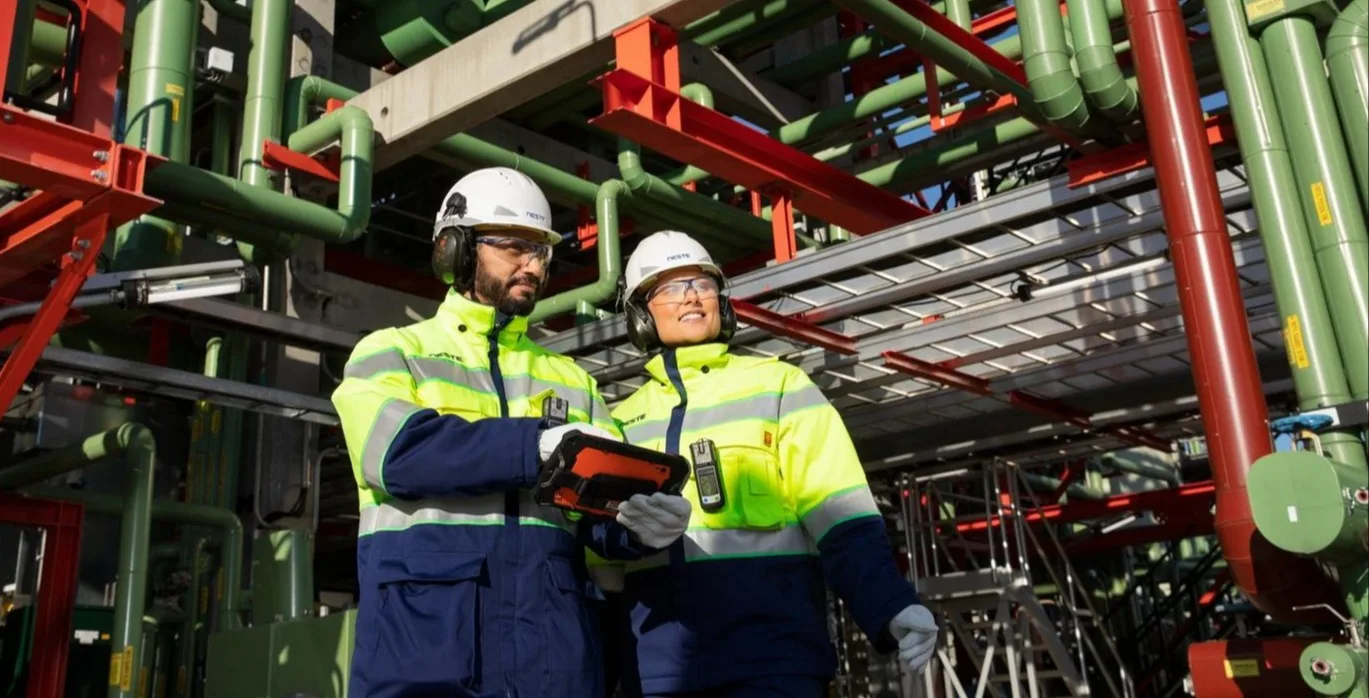Sustainability governance

Neste’s sustainability vision and commitments are an instrumental part of our strategy, guiding us on our growth and transformation journey.
Managing sustainability
Neste’s Board of Directors is in charge of sustainability matters of major significance to the Neste Group including, among other things, the approval of the long-term ambition and targets for the Neste Group’s sustainability vision, adoption of Neste’s statutory sustainability reports and reviewing the sustainability performance. The Board also approves Neste’s values, policies and the most important corporate principles, including Neste’s sustainability policy, which outlines Neste’s approach to managing material sustainability impacts, risks and opportunities. The outcome of the double materiality assessment is reviewed by the Board. The Board has the ultimate responsibility for sustainability matters and risk oversight of major significance to Neste. The Annual General Meeting selects the Sustainability Reporting Assurer. Neste’s President and CEO prepares and makes necessary proposals to the Board e.g. related to corporate strategy, including the long-term ambition and targets for the sustainability vision. The Neste Leadership Team approves Neste’s sustainability priorities and sustainability is represented in the Leadership Team through Executive Vice President, People & Culture. Responsibility for monitoring individual corporate sustainability targets is shared among the members of the Neste Leadership Team and reviewed periodically by the Leadership Team.
Neste’s sustainability work is managed by the Sustainability, Human Resources, and Safety units and is implemented across all applicable business areas and functions, supported by internal policies, principles and standards.
The sustainability vision is part of the Neste strategy and it undergoes the same Neste Leadership Team and Board review as any other strategic priority. Neste’s Board of Directors reviews the sustainability performance for topics in the sustainability vision at least once a year.
Our global sustainability commitments
Materiality assessment
The sustainability information disclosed by Neste is based on Neste’s double materiality assessment, conducted in accordance with the European Sustainability Reporting Standard (ESRS). In 2024, Neste has, for the first time, undertaken a double materiality assessment in line with ESRS requirements. Further information about the company’s double materiality assessment can be found in the Sustainability statement, published as part of the Review by the Board of Directors.
Sustainability-related risks
Material sustainability risks for Neste are assessed in double materiality assessment (DMA) in line with European Sustainability Reporting Standards. As the basis for DMA, sustainability-related risks are identified and managed in quarterly risk reviews as a part of Enterprise Risk Management (ERM) at Neste in line with the Corporate Risk Management Policy and supporting principles and standards. The assessment considers short-, medium- and long-term perspectives. The prioritization of risks is based on the risk assessment scales according to the Neste Corporate Risk Management Policy.
Our operations are associated with a number of sustainability-related risks. We aim to identify any threats and proactively prevent them. The risk management team monitors the level of risks and ensures that the risks are identified and mitigated appropriately by Neste's business units, functions and country units. We report on our most significant sustainability-related risks annually in the Review by the Board of Directors and its Sustainability statement.
Share this